
OR
NEPAL-INDIA TIES
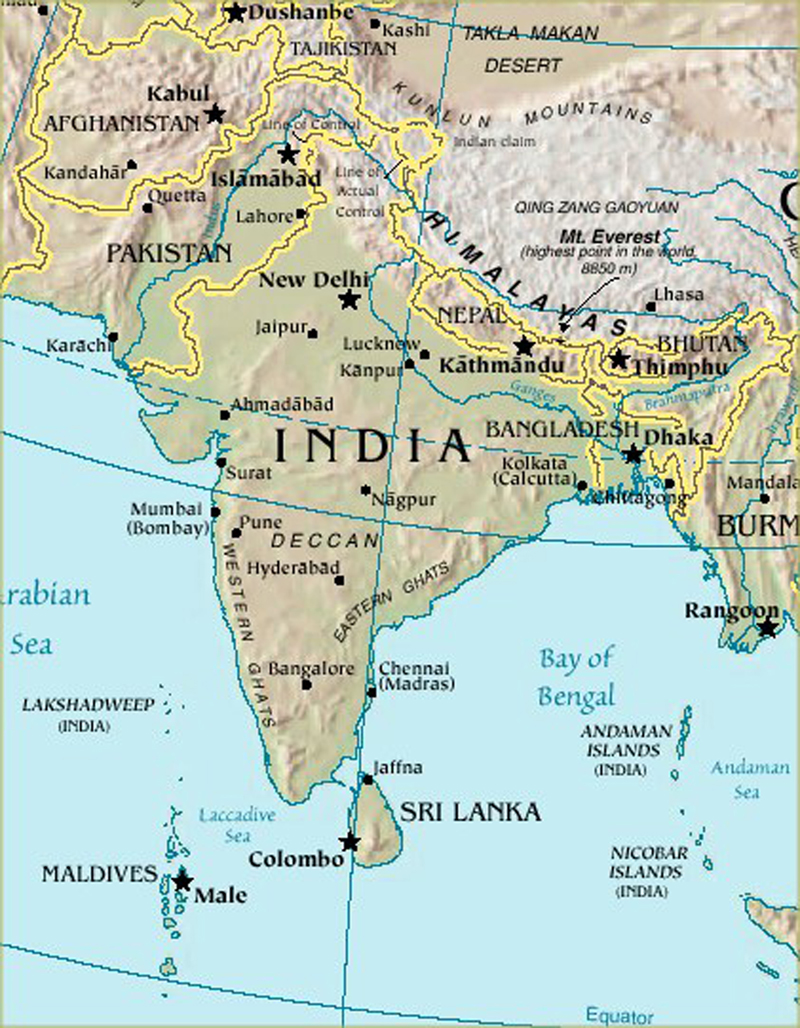
More from Author
We have a strange political culture here in Nepal. One is not considered a patriot and pro-Nepal unless one is anti-India.
We hear umpteenth times at meetings, conferences and seminars from our intellectuals and politicians alike that Nepal-Bharat relation is strong, eternal and that nothing can disturb this roti-beti connection. Yet why is it that we need so many meetings between the two of us to remove misunderstanding and uphold this ‘sound and solid’ tie? If everything between us is so strong and so binding why does the ship rock so badly given the slightest ripple? Is our relationship really that strong or is it but a myth based on political expediency?
It won’t be wrong to say Nepal has no policy vis-à-vis India. The policy, if any, is based on personality and ambition of leaders and politics of the day. This has been so from the days of Ranas and Shah kings to the present. How do we Nepalis really view India in today’s world? Is our relationship based only on opportunism? Or is it much deeper?
In truth we do not understand or we don’t want to know what lies in those depths because we have forgotten who we really are, what the reality of our heritage truly is.
Let’s be honest. For Nepal to progress rapidly and become prosperous we need all the good-will we can get from India. The fact is, and unalterably so, we are India-locked on three sides. India is rapidly progressing in its business, industry and science. For Nepal this is a great opportunity since this progress is just across the border and readily available to us, if we can tap into it.
We have a strange political culture here. One is not considered a true patriot and pro-Nepal unless one is anti-India. This dangerous mischief has been at play since the days of King Mahendra. But this does not make us true nationalists. A true nationalist is the one who wants Nepal to prosper from the grassroots, who works to end the system whereby we receive about three dead bodies of Nepali migrant workers on a daily basis. A genuine nationalist is the one who ensures every Nepali can hold his/her head anywhere he goes, and he is not considered a national of a country completely dependent on foreign aid even for disposing off its garbage. But we have leaders in power who take all this normally and boast of being nationalists.
Let me come back to the question of how Nepal and India should treat each other and how the traditional bond can be further strengthened.
First, Nepal should present itself on world stage as an independent country, a member of the United Nation that has as much voting rights as does India. The two countries may disagree over some issues but they should not intend harm. Once Nepal thus presents itself, India should reciprocate. Its government, politicians and bureaucrats should give Nepal due sympathy whether in providing access to the ports of entry or considering how infrastructures in border areas are causing floods on Nepali side. Border harassment and cross-border flooding should not be allowed to strain our friendship.
Second, Nepal and India should consider themselves parts of larger Indian subcontinent. Then we will realize that we are the same family, though Nepal is much smaller in size than India. We have lived as members of same family—geographically, environmentally, historically and culturally—ever since the shift of the tectonic plates brought us together. This unity as a family cannot be wished away, nor can this geographical fact be negated by anyone. As the younger family member, and poorer and less developed of the two, Nepal feels India has a responsibility to help it in need.
At the same time Nepal should stop being suspicious of each and every move of India. We need to deal with each other with maturity. Nepal should be sensitive to the concerns of India. Constant suspicion of India will make us paranoid and prevent us from reaping full economic and other benefits from our relationship.
Third, we need to consider our shared familial ties. Both countries are populated by the off-springs of the same sages and rishis. Indians and Nepalis share same gotras,
lineage. We are both parts of the same heritage from time immemorial. We are inheritors of the same philosophy, culture, traditions and religion. We have the same spiritual foundations and the same goals guided by philosophy of Sanatan Dharma. As believers of this dharma, Nepal and India are equals. At spiritual level we are one and always equal.
If both countries adhere to this philosophy of oneness and equality, all artificial boundaries vanish. Political boundaries have not set us apart. The open border between India and Nepal is testimony to this. This kind of extraordinary openness is unparallel anywhere in the world.
There are some who are skeptic of this spiritual side. They call it unrealistic and outdated and even anti-national. But this is the only solid and permanent foundation that binds us. Economy, trade, security and politics keep changing but this spiritual commonality will never erode as it is based on the truths of this eternal dharma. Through this spiritual approach a Nepali man will feel a sense of belonging to India, and vice-versa.
If our two countries consider these three truths, there won’t be any problem that we cannot solve. If we shun the hypocrisy of politics and take to heart these guidelines there will never be any major misunderstanding between us. The open border is a symbol of our unique unity, helping Nepalis and Indians alike economically, culturally and socially. It is actually a glorious reminder of the very basis of our unshakeable relationship of oneness propounded by those old sages.
I hope people on both sides of the border will consider these truths that may have been either forgotten or overlooked. We need to reflect on them for the good of the two countries. The great sages of the past had wished for unity and harmony for all their offspring. Let us not act otherwise.
You May Like This

Nepal's Forests in Flames: Echoes of Urgency and Hopeful Solutions
With the onset of the dry season, Nepal's forests undergo a transition from carbon sinks to carbon sources, emitting significant... Read More...
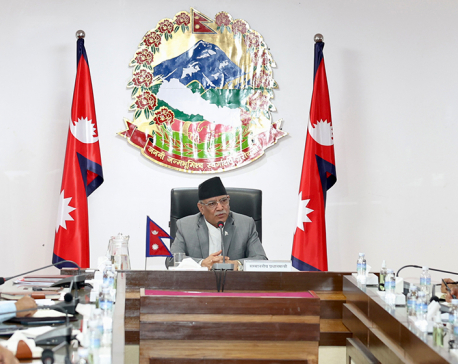
Live and let die, Sarkaar!
Some time ago, in a dazzling display of our Prime Minister’s political finesse, he revealed yet another populist spectacle; his... Read More...

'Victim blaming'- Nepali society's response to sexual violence
Multiple studies show that in most sexual assaults, the attacker is someone known and trusted by the victim. ... Read More...
Just In
- KMC to organize a month-long skill fair from May 1
- Birgunj Metropolis collects over Rs 360 million in revenue
- NEPSE plunges below 2,000 points after one and a half months; daily turnover declines to Rs 2.10 billion
- AI Index Report-2024: AI still behind humans on complex tasks like competition-level mathematics
- Daiji-Jogbudha road construction at snail’s pace
- Govt fails to adopt podway technology despite its potential in Nepal
- Jhulaghat border crossing in Baitadi to remain closed from this evening
- Universities will be free from partisan interests: Education Minister








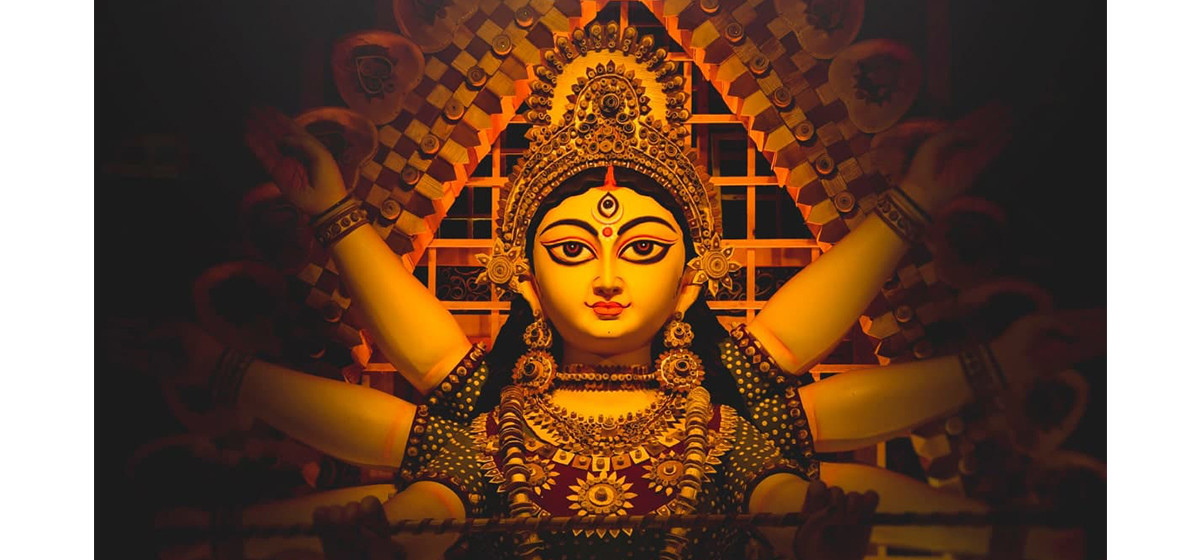




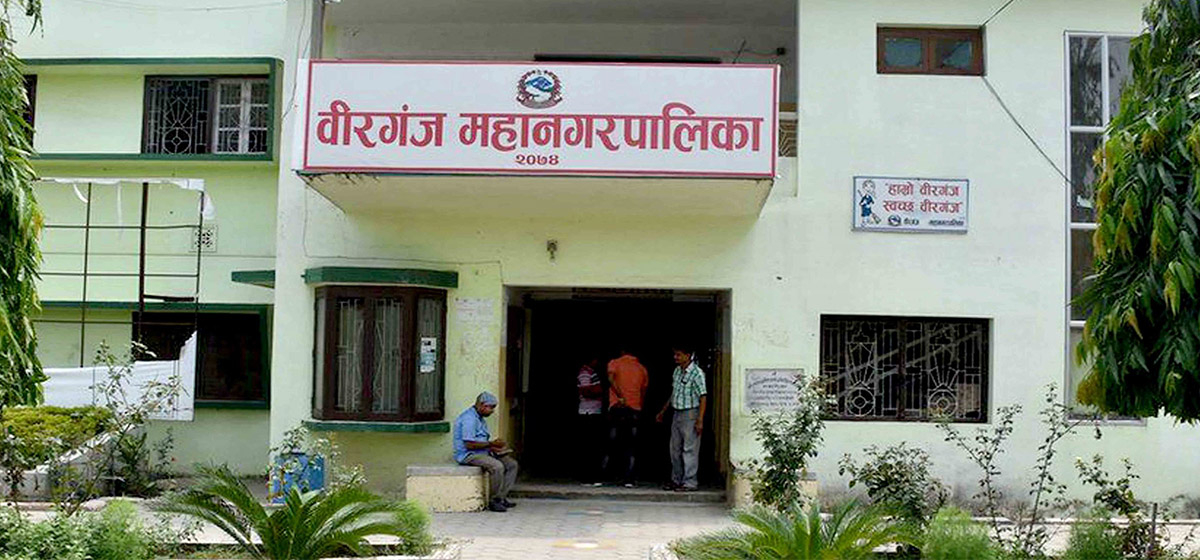


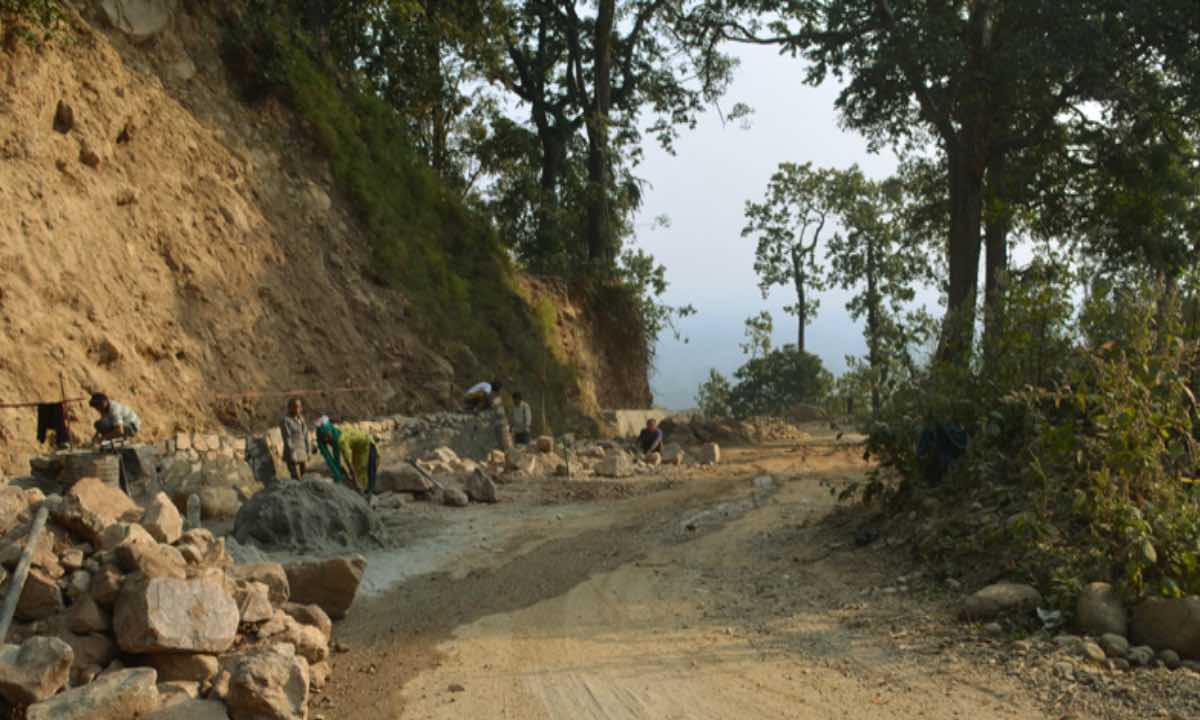
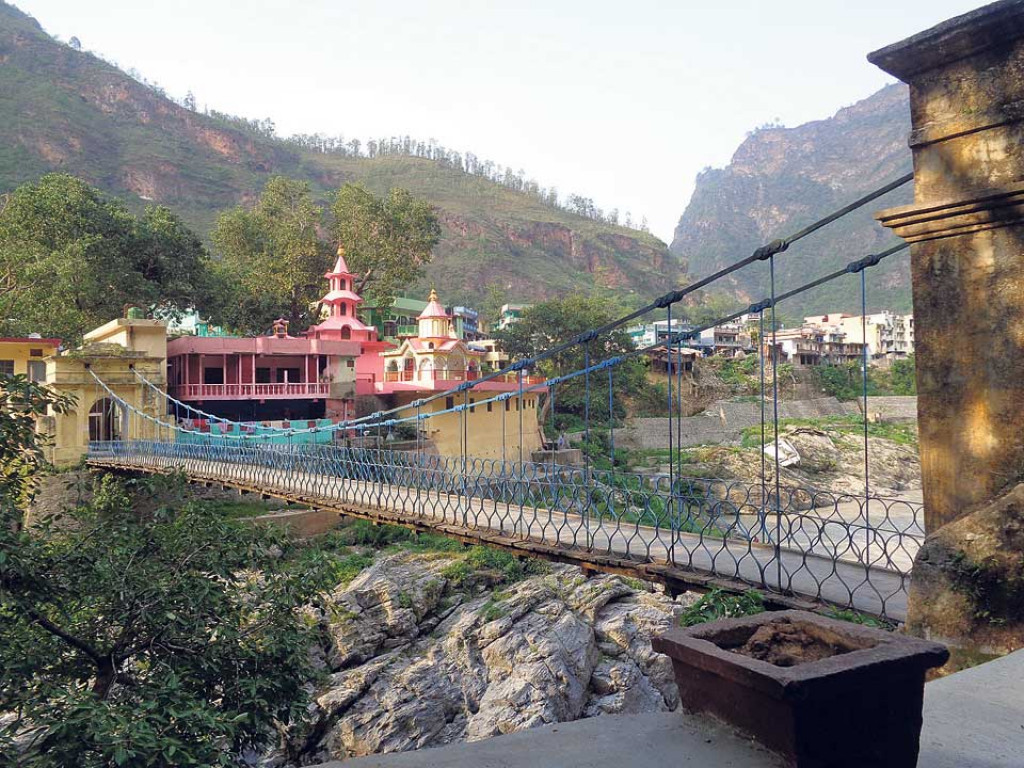
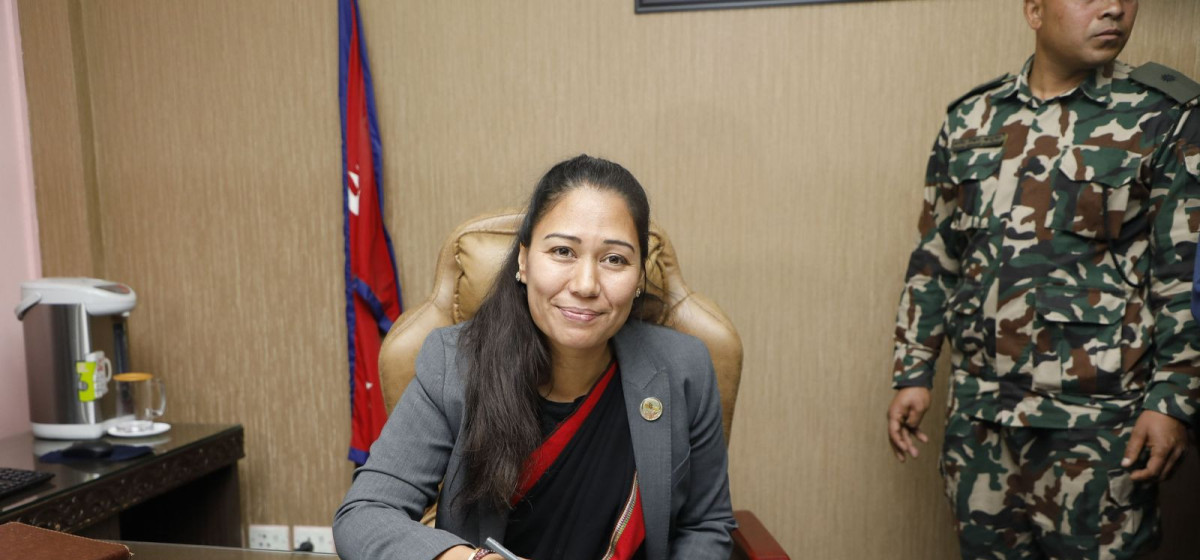
Leave A Comment